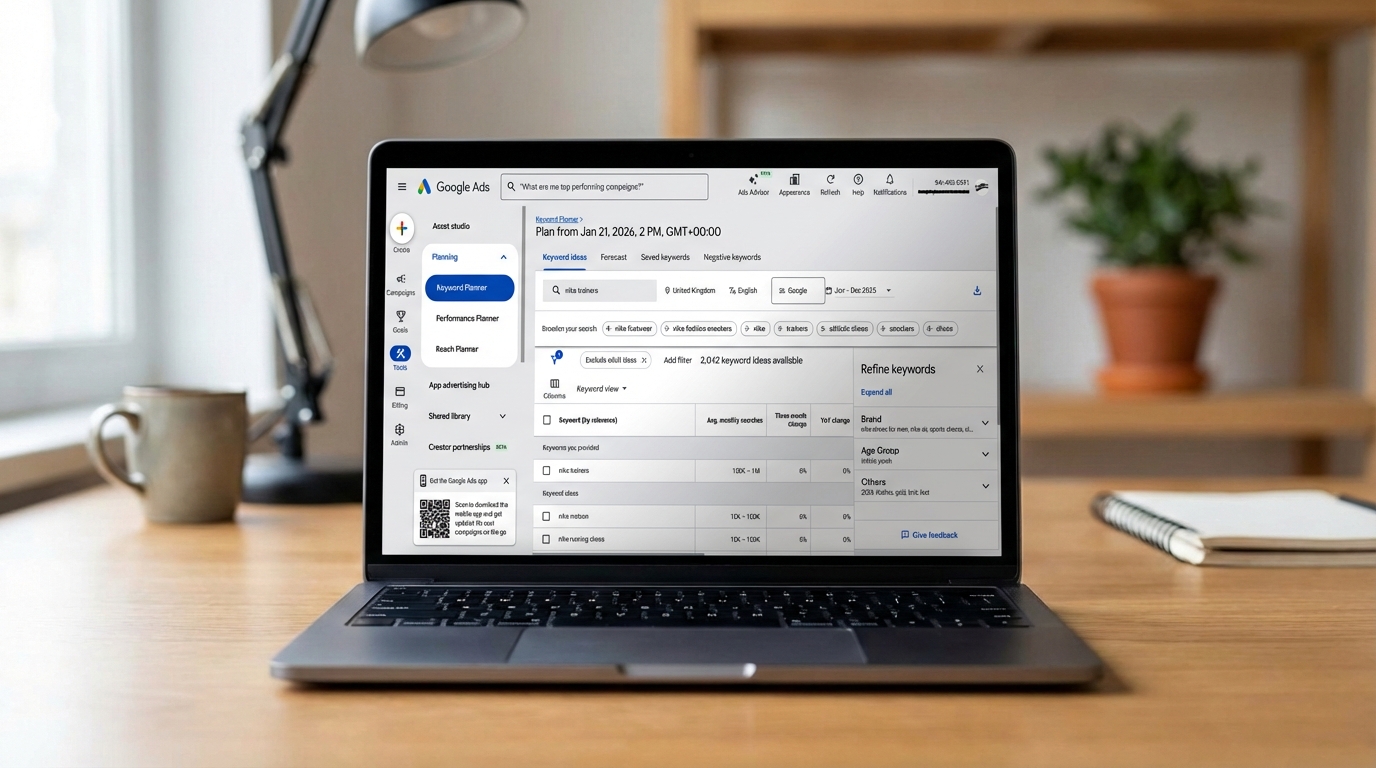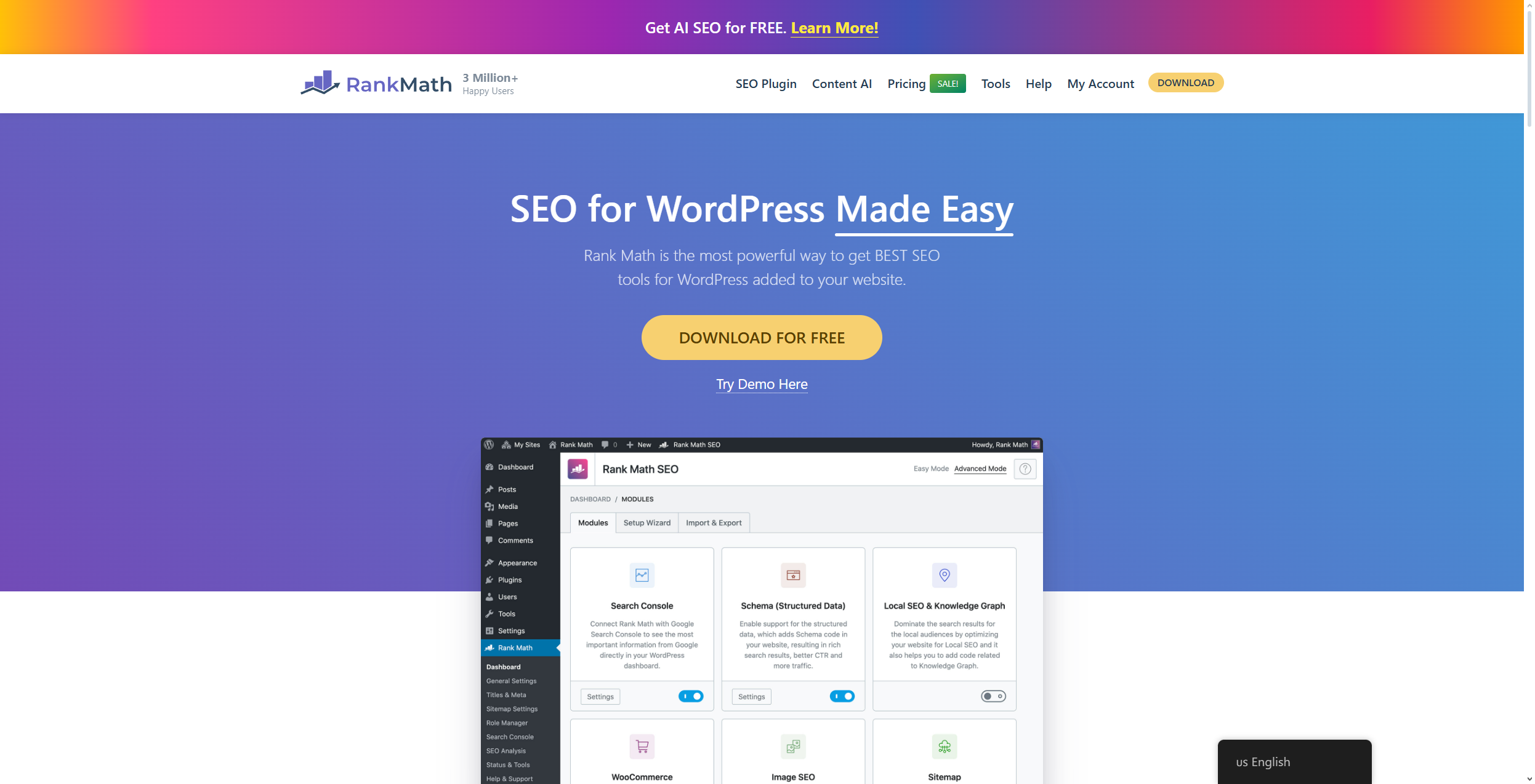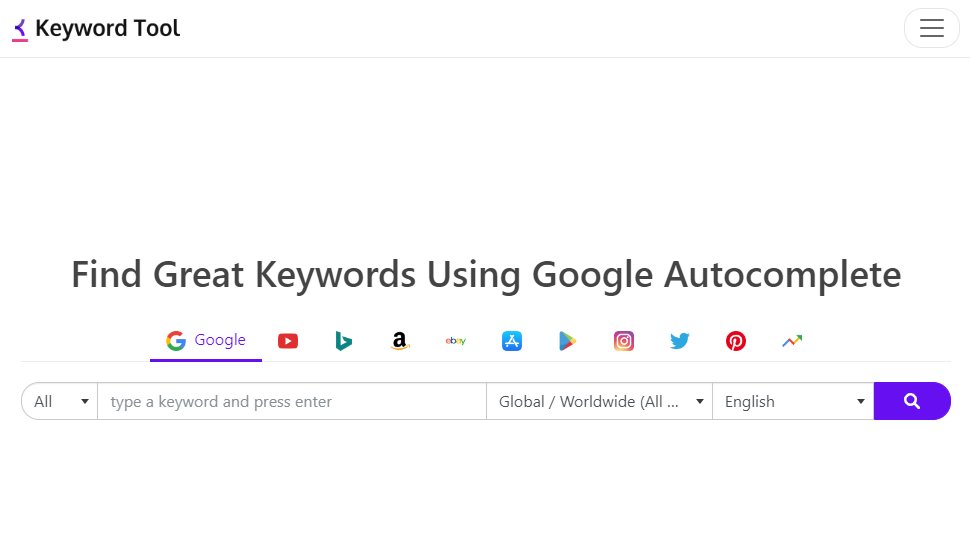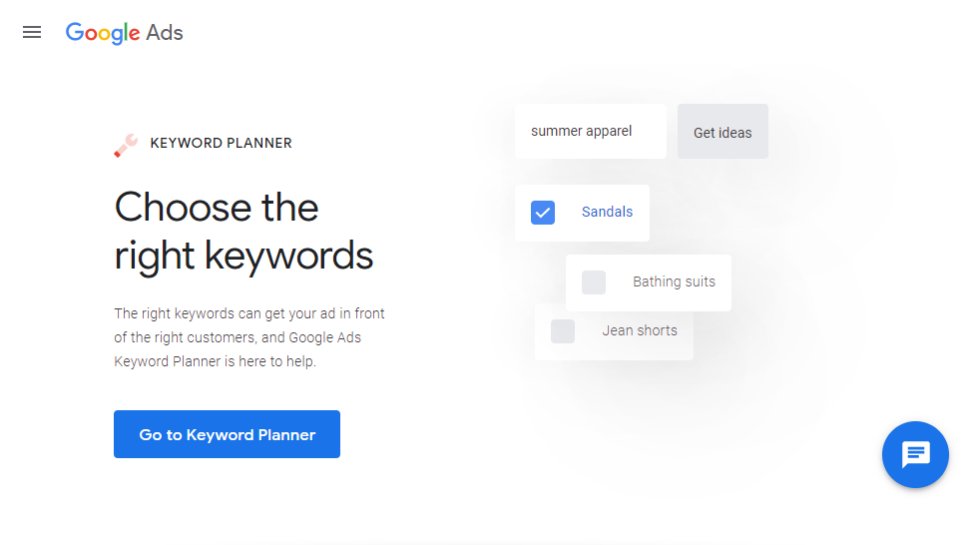The best SEO keyword research tool of 2026
Gather insights and understand customer intent

Sign up for breaking news, reviews, opinion, top tech deals, and more.
You are now subscribed
Your newsletter sign-up was successful
The best SEO keyword research tools do more than make it easy to find keyword data - they reveal search intent that makes your customer tick.
I've been using the best SEO tools for almost a decade. Now, I have created this list of my top keyword research tools.
Ahrefs tops the list in 2026. This is thanks to its unmatched database and keyword suggestions. Starting at $29/mo, it is affordable, although you will need to upgrade to unlock its most powerful features.
The best SEO keyword research tools of 2026 in full:
Why you can trust TechRadar
Best SEO keyword research tool overall
Reasons to buy
Reasons to avoid
If you're looking for a tool with a large data library, Ahrefs should be at the top of your list. Its database is spread across 10 different search engines and lets you get detailed insights into keyword difficulty, search volumes, and competitive analysis for crafting effective SEO strategies.
For expanding your content reach and visibility, it even has a keyword suggestions tool that helps find related terms and questions through its deep understanding of search intent and relevancy.
Moreover, the Keyword Explorer offers tons of metrics and useful data to help your keyword study. For instance, it offers a "Return Rate" metric, which tracks how often people are searching for a specific keyword again. You can also analyze the total number of clicks for a specific keyword on the search engine through Ahrefs “Click” data.
Even its interface is pretty easy to navigate and you can get used to its toolset quite easily. However, the plenty of features and data might be slightly confusing. Despite this, you can easily overcome any problem with the help of its extensive documentation and Ahrefs' responsive customer service.
All in all, Ahref's data accuracy, user-friendly interface, and support structure make it a standout choice for keyword research, especially when it comes to keyword insights and strategic SEO planning.
Ahrefs pricing and plans
Plan | Price (paid monthly) | Price (paid annually) |
|---|---|---|
Starter | $29/mo | NA |
Lite | $129/mo | $108/mo |
Standard | $249/mo | $208/mo |
Advanced | $449/mo | $374/mo |
Enterprise | NA | $1499/mo |
Learn more about Ahrefs
Read our full Ahrefs review.
Best SEO keyword research tool for analysis
Reasons to buy
Reasons to avoid
Semrush comes with gigantic data of over 25 billion potential keywords under it. It does deep keyword research for you and offers crucial figures related to search volumes, user intent classifications (informational, commercial, navigational, transactional), and competitive density scores on a scale from 0 to 1.0. Its large database offers critical information on important metrics like search trends, keyword volumes, keyword difficulty, and cost-per-click (CPC) rates. All this helps you find the right keywords and understand competitors' activities.
During our tests, we found its competitive analysis feature quite impressive as it didn’t just mention our competitor's ranking keywords but even went a step ahead and noted down the visibility score of keywords. This score shows the keyword’s prominence on the Search Engine Result Pages (SERPs).
Plus, you can further compare your keyword profile with up to five different competitors through Semrush’s Gap Analysis feature. Along with this, if you want to know the “not provided” keywords, Semrush seamlessly integrates with different Google tools like Google Analytics and Google Search Console (GSC) to show these keywords comprehensively.
To easily let you find your way around the vast amount of tools and data, Semrush has designed its interface to be powerful and user-friendly. For the times you get stuck, its support system provides live chat, email support, and a wide range of tutorials and resources to help you.
Semrush pricing and plans
Plan | Price (paid monthly) | Price (paid annually) |
|---|---|---|
Starter | $199/mo | $165.17/mo |
Pro+ | $299/mo | $248.17/mo |
Advanced | $549/mo | $455.67/mo |
Learn more about Semrush
Read our full Semrush review.
Best SEO keyword research tool for WordPress
Reasons to buy
Reasons to avoid
RankMath is a powerful WordPress SEO plugin with excellent rank tracking capabilities. It integrates with Google Search Console so you can view your keyword rankings directly from your WordPress dashboard, eliminating the need for other tools. The rank tracker feature of the plugin allows you to view where your selected keywords rank in search, which gives you excellent insights into how effective your search efforts are.
What keeps RankMath at the top is its module-based architecture. The architecture allows you to activate only the features you require, making it quicker and more efficient. Plus the rank tracking functionality lets you monitor a large number of keywords depending on your plan. For example, RankMath's PRO plan monitors 1,000 keywords, the Business plan monitors 20,000 keywords, and the Agency plan monitors up to 75,000 keywords.
RankMath's user interface is simple and welcoming, easy for newcomers, while still having many advanced features for experienced SEOs. The plugin provides straightforward analytics on your ranking performance, your top and worst posts and keywords, and your position over time.
Rank Math pricing and plans
Plan | Price (paid annually) |
|---|---|
Pro | $107.88 |
Business | $355.88 |
Agency | $779.88 |
Learn more about RankMath
Read our full Rank Math review.
Best SEO keyword research tool for beginners
Reasons to buy
Reasons to avoid
Keyword Tool.io’s straightforward approach to keyword research makes it the perfect starting point for beginners. Its clean and user-friendly interface lets you quickly generate long-tail keyword suggestions across various platforms, including Google, YouTube, Bing, Amazon, and more. It does this by using Google Autocomplete, which finds popular and relevant keywords and delivers crucial data beyond the one available on Google Keyword Planner.
It further provides essential keyword data like search volume, trends, CPC, and competition levels with its Pro version and that too without making the process difficult. What makes it a great keyword research tool is its support for over 192 different types of Google domains and 83 different languages which helps in targeting both global and local SEO strategies. Under this, you can find the localized search volume data and trends, which prove whether your SEO strategy is effectively curated to different markets and search behavior or not. Through this, you can boost your traffic and engagement across diverse and specific audiences.
However, if you’re looking for in-depth competition analysis, you may find the features lacking compared to more advanced tools. Plus, the absence of direct phone support or chat could be a downside when you need immediate assistance. However, the platform's straightforward design and online resources ensure this doesn’t happen. Another great thing about this tool is its starting price of just $89/month for the Pro plan. This makes it an accessible option for those just starting in SEO.
Keyword Tool pricing and plans
Plan | Price (paid monthly) | Price (paid annually) |
|---|---|---|
Free | $0/mo | $0/mo |
Pro basic | $89/mo | $69/mo |
Pro plus | $99/mo | $79/mo |
Pro business | $199/mo | $159/mo |
Learn more about keyword tool
Read our full Keyword Tool review
Best free SEO keyword research tool
5. Google Keyword Planner
Reasons to buy
Reasons to avoid
If you’re looking for a free tool to help you in keyword research, you can always bet on Google Keyword Planner. The best thing about this tool is that it seamlessly integrates with Google Ads and gives you a straightforward interface that simplifies keyword research.
Besides this, you can uncover information regarding search volume, competition level, and cost-per-click (CPC) estimates for your keywords of interest, which tap into the source of over 3.5 billion daily searches.
The Keyword Planner also helps you filter and refine your keyword list based on various criteria, such as search volume, competition, keyword type (broad match, phrase match, or exact match), and more. This helps you focus on the most relevant and valuable keywords for your campaign. If you want to plan your budget for Google Ads, The tool allows you to estimate the potential cost and performance of your ad campaigns based on your selected keywords, bid amounts, and budget.
Furthermore, support for Google Keyword Planner users is mainly available through comprehensive online help documents and active community forums. While these resources are informative, lacking direct support channels might leave you seeking more personalized assistance.
However, while it delivers essential data, the tool does not provide trend analysis, making it difficult to identify emerging keywords or seasonal changes. Additionally, if you’re not investing in Google Ads, you’ll receive ranges instead of specific numbers for keyword volume data which might not be very useful for you when it comes to detailed analysis.
Google Keyword Planner pricing and plans
Google Keyword Planner is totally free to use.
How we tested the best SEO keyword research tools
To test for the best SEO keyword research tools we first set up an account with the relevant software platform, then we tested the service to see how the software could be used for different purposes and in different situations. The aim was to push each keyword research tool to see how useful its basic features were and also how easy it was to get to grips with any more advanced SEO options.
Read more on how we test, rate, and review products on TechRadar.
SEO keyword research tool FAQs
How to choose the best SEO keyword research tool for you?
When deciding which SEO keyword research tool to use, first consider what your actual needs are, as budget options may only provide basic features, so if you need to use advanced tools you may find a more expensive platform is better suited to you.
Additionally, higher-end SEO software usually includes a range of ranking and content tracking options, along with a comprehensive tool box to suit every need, so do ensure you have a good idea of which features you think you may require from your keyword research tool.
What is the difference between Keyword Difficulty and Search Volume?
Many keyword research tools, including Google's Keyword Planner, offer a Keyword Difficulty score as well as Search Volume.
Search Volumes offer insight into how many searches are made for a particular term during a specific period of time. Typically the higher the search volume, the more people you would expect to click onto your website if you ranked highly for that term.
Keyword Difficulty highlights how hard it would be to rank for a certain term. Keyword difficulty tends to be based on a combination of search volume, search intent, and competition. For example, the term 'size 10 Nike trainers' likely has a medium sized search volume, but high buying intent and high competition, making it a difficult term to rank for.
What is the best keyword research tool for small businesses?
Free tools such as Google Keyword Planner tend to be the best place for small businesses to get started with keyword research. These tools can offer valuable insight, without eating into small budgets.
However, small businesses that want to gain a competitive edge would benefit from investing in more advanced tools, offering them more insight into what they can do to beat competition for more hotly competed keywords.
Sign up to the TechRadar Pro newsletter to get all the top news, opinion, features and guidance your business needs to succeed!

Owain has been building websites and online stores for his own and his client's businesses for over 8 years. Having taken on a role at TechRadar Pro in 2023, he now leads on all website builder and CRM content, spending his days researching, testing, and reviewing some of the best website building and CRM platforms on the market. He also has a passion for helping people get a great deal on website builders, delivering the best coupon and promo codes on the market. With an extensive background in business, Owain holds a BA(Hons) in Business and Marketing and has written for several leading publications including MarketingProfs, Website Builder Expert, Digital Doughnut, and NealSchaffer.com.




